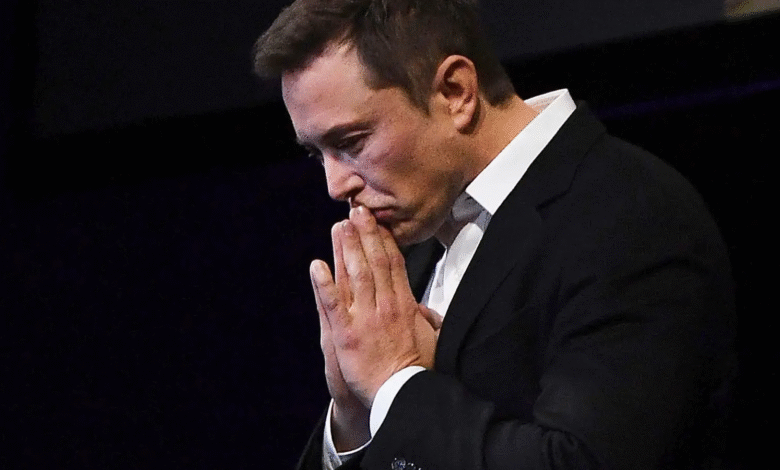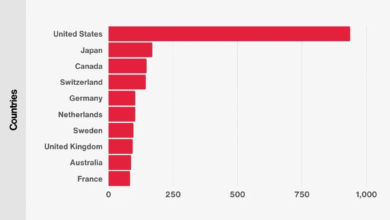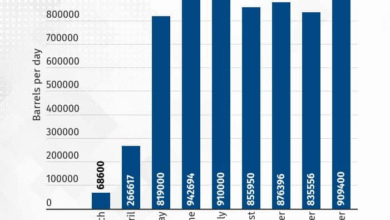Tesla Stock Drop: What’s Behind the 7% Decline

Tesla stock drop has caught the attention of investors and analysts alike, with shares plummeting 7% from Friday’s closing price of $323.63 to $300.71 by Tuesday. This sharp decline comes just ahead of Tesla’s much-anticipated second-quarter delivery report, where expectations are set for around 387,000 units—down from 444,000 a year ago, according to FactSet. Additionally, the optimistic buzz surrounding Tesla’s robotaxi pilot in Austin, Texas, quickly waned after CEO Elon Musk reignited a feud with President Trump over federal spending bills. Analysts are also keenly observing how trends in Tesla EV sales impact the company’s financial stability, and forecasts suggest that reduced subsidies may hinder deliveries further. With a focus on Tesla shares decline, investors are left questioning the future growth of this electric vehicle giant amid fluctuating market sentiments.
The recent tumble in Tesla’s stock price has sparked interest and concern across the investment landscape. This setback comes in light of the company’s forthcoming delivery figures, which are pivotal for gauging market performance. As discussions surrounding the electric vehicle market evolve, revelations from the ongoing Elon Musk and Trump confrontation could have broader implications. Furthermore, the anticipated impact on Tesla’s autonomous vehicles and EV sales from recent legislative changes adds another layer of complexity to investor sentiment. Observers are now closely tracking how Tesla, as a market leader, will navigate these challenges while striving to maintain its competitive edge.
Impact of Tesla Stock Drop on Investor Sentiment
The recent decline in Tesla stock, which dropped by 7% from $323.63 to $300.71, has sent ripples through investor sentiment. This downturn is especially notable as it comes just ahead of the company’s second-quarter delivery report, where expectations were already muted due to projections of a decline in deliveries. As analysts foresee a drop from nearly 444,000 deliveries last year to around 387,000 this year, the apprehension among shareholders is palpable. Such bearish sentiment can lead to increased volatility as traders anticipate further fluctuations in Tesla shares, particularly as investor confidence fluctuates with changing reports.
Furthermore, the decline in Tesla shares is compounded by significant external factors, such as CEO Elon Musk’s recent political commentary that has reignited a public feud with former President Trump. These events tend to influence investor confidence, as uncertainty in leadership can trickle down to perceived company performance. Investors closely monitor not just the numbers but the narratives around key figures like Musk, which can have substantial impacts on stock value in such a dynamic marketplace.
Second Quarter Delivery Report: Expected Outcomes
Tesla’s anticipated second-quarter delivery report is a critical moment for the company, providing insight into how current market conditions impact its operations. With analysts predicting a decline to approximately 387,000 deliveries, the company’s performance seems to be under increasing scrutiny. The decline represents a considerable shift from last year’s achievements, causing concern about the future trajectory of Tesla in the competitive EV market. If the company can share positive outcomes or enlightening developments surrounding its innovative ventures, such as the robotaxi pilot program in Austin, it might alleviate some of these fears.
Moreover, the decline in second-quarter deliveries can have lasting implications on Tesla’s stock performance and overall market positioning. If the report fails to meet expectations, the stock may experience further pressure, as investors tend to react sharply to such news. However, should Tesla surprise the market with better-than-expected delivery figures, it could potentially reverse the current downward trend in share prices and restore confidence among investors.
Elon Musk and his Twitter Feud with Trump
The feud between Elon Musk and Donald Trump has intensified with Musk’s recent comments about the One Big Beautiful Bill Act. Musk’s critique of the bill, aimed at highlighting potential impacts on renewable energy funding and electric vehicle sales, may point to broader concerns about the future landscape of Tesla’s growth. As Musk spoke out against the bill’s potential shortcomings, the tension between business and politics became underscored, revealing how intertwined corporate welfare and regulatory environments can be for a company like Tesla that heavily relies on federal incentives.
The implications of this feud extend beyond just public discourse; they reflect a significant concern regarding Tesla’s operational future. The criticism from Trump regarding Musk’s dependability on government contracts exposes vulnerabilities inherent in Tesla’s business model. Investors are likely considering how this battle could impact consumer attitudes towards the brand as it navigates the challenging waters of public perception and political dynamics.
The Future of Tesla Robotaxi Program
Tesla’s robotaxi program has been a point of excitement for the company, showcasing its pioneering approach to autonomous vehicles. Announced just prior to the stock drop, this initiative represents the potential for a massive revenue stream if successfully executed. Early operations in Austin, Texas, highlight Tesla’s ambitious goals; however, recent headlines linking the robotaxi project’s success to Musk’s political engagements create a mixed environment for investors. The viability and scaling of this program could ultimately determine the trajectory of Tesla’s future EV sales and market dominance.
As the company moves forward with its robotaxi program, its integration into the mainstream market will be essential for demonstrating Tesla’s innovative edge over competitors. Success in rolling out this service could boost Tesla’s sales significantly, contrasting with the general nervousness surrounding current delivery numbers. Therefore, investors are keeping a close eye on how the company manages these autonomous driving initiatives amidst fluctuating investor sentiment and political pressures.
The Effect of EV Sales Projections on Tesla’s Future
Projections regarding Tesla’s EV sales are becoming increasingly critical, especially as forecasts suggest a potential reduction of up to 100,000 vehicles annually by 2035 due to legislative changes. Such projections are alarming for investors, as they indicate a substantial impact on Tesla’s revenue streams. If these developments come to fruition, it would imply that competition in the EV market will heat up as new manufacturers enter, vying for market share that Tesla currently dominates.
Moreover, the potential reduction in sales will not only affect Tesla’s profitability but also carry repercussions for the company’s stock price. As investors assess the risk levels associated with these changing sales dynamics, it becomes crucial for Tesla to adapt quickly and seek alternative revenue opportunities. The ability to scale up production efficiencies or pivot towards new markets could mitigate some of these forecasting challenges.
Navigating Regulatory Challenges: The Road Ahead for Tesla
As Tesla navigates the complexities of regulatory changes, its future in the EV market may hinge on how well it manages these challenges. Recent developments, particularly the proposed federal spending bill, pose a substantial risk due to projected cuts to subsidies and tax incentives that have traditionally bolstered Tesla’s operations. The potential for legislative shifts could reshape the financial landscape for Tesla, making it crucial to pivot towards sustainable growth strategies.
Facing such regulatory challenges, Tesla might need to innovate continuously and leverage its brand strength to maintain consumer loyalty amidst potential price increases or reduced incentives. This adaptability could be essential for counteracting any adverse fallout stemming from legislative changes, ensuring that Tesla remains a leader in the rapidly evolving automotive industry. Effective communication about how the company plans to navigate these complexities will also be key to maintaining investor confidence.
Tesla’s Energy Division and Renewable Energy Funding
Tesla’s Energy division, which focuses on solar and battery storage systems, is closely linked to both the success of the company’s EV sales and the broader renewable energy market. With potential cuts to renewable development funding from government initiatives, the pressure on Tesla’s Energy division may grow. Analysts project that the loss of federal support could curtail growth in this segment, further complicating Tesla’s already ambitious targets in clean energy.
Moreover, as discussions surrounding fossil fuel reliance and transitioning to renewables intensify, Tesla’s ability to advocate for sustainable energy policies will be critical. The company must leverage its position to engage with policymakers actively, ensuring that EV sales and renewable energy incentives are not adversely affected. The alignment of the company’s goals with global sustainability trends could protect its interests in this evolving market landscape.
Investor Reactions: How Market Sentiment is Shaped
Investor reactions to Tesla’s stock fluctuations are shaped by a variety of factors, including delivery forecasts, political discourse, and overall market conditions. As a bellwether for the EV industry, Tesla’s stock performance often dictates broader market sentiment among electric vehicle stocks. Individual investors and institutional stakeholders closely monitor news related to Tesla, translating developments into market strategies that can create ripple effects across the entire automotive sector.
In times of uncertainty, such as the current political climate and anticipated sales decline, investors may engage in profit-taking or reallocating their portfolios to mitigate risk. This behavior can further exacerbate price drops, revealing just how interconnected market sentiment and company performance are. As Tesla navigates these challenges, understanding the nuances of investor behavior will be critical to restoring confidence and bolstering its market position.
Looking Ahead: The Future of Tesla Amid Controversy
As Tesla moves forward amidst controversies involving its CEO and external factors, the future of the company remains a topic of vibrant discussion. The tension between Elon Musk’s public persona and the company’s strategic direction could present both challenges and opportunities. Stakeholders need to remain vigilant regarding how these dynamics may influence not only Tesla’s performance but the broader EV market landscape.
In addition, market reactions to Tesla’s developments will likely evolve as investors gain clarity on how the company intends to address both regulatory hurdles and consumer demands. The ability to demonstrate resilience and adaptability in the face of controversy will be crucial for instilling confidence in Tesla as a leading force in the electric vehicle market.
Frequently Asked Questions
Why did Tesla shares drop recently?
Tesla shares declined by 7% recently, dropping from a closing price of $323.63 to $300.71. This decrease came ahead of the company’s second-quarter delivery report, with analysts expecting a 13% decline in deliveries compared to last year.
How did Tesla’s second quarter delivery expectations affect its stock drop?
The anticipated drop in Tesla’s second quarter deliveries, expected to be around 387,000 units—a significant decrease from 444,000 last year—contributed to the stock’s decline. This news raised concerns among investors about Tesla’s growth trajectory.
What impact did Elon Musk’s feud with Trump have on Tesla stock?
Elon Musk’s recent feud with President Trump regarding the One Big Beautiful Bill Act had a negative impact on Tesla’s stock. As Musk criticized elements of the bill that could cut renewable energy support, it raised fears over potential declines in EV sales and pushed the stock lower.
How does Tesla’s robotaxi pilot relate to the stock performance?
Tesla’s robotaxi pilot in Austin initially drove optimism in the stock, as the launch suggested innovative growth. However, this positivity was overshadowed by broader concerns about delivery figures and Musk’s controversial remarks, leading to the recent stock drop.
What are the implications of the federal spending bill on Tesla EV sales?
Analysts predict the federal spending bill could lead to reductions in Tesla’s EV sales by around 100,000 vehicles annually by 2035. This could significantly impact Tesla’s revenues and contribute to the current decline in its stock price.
What role do federal credits play in Tesla’s financial performance?
Tesla’s sales of automotive regulatory credits have been essential for its financial health, accounting for about 60% of its net income in the second quarter of 2024. Changes in public policy could pose a threat to these credits, further influencing Tesla stock fluctuations.
Are Tesla stocks expected to recover after the recent drop?
While it is uncertain whether Tesla stocks will recover quickly, factors like upcoming delivery reports and reactions to political developments will heavily influence market sentiment and stock performance going forward.
How did Wall Street analysts respond to the recent Tesla stock drop?
Wall Street analysts are closely watching Tesla’s performance amidst the stock drop, with many concerned about the anticipated lower delivery numbers and the impact of political actions on the electric vehicle market.
What is the relationship between Tesla’s EV sales and the federal policy environment?
Tesla’s EV sales are significantly affected by the federal policy environment, including subsidies and regulatory credits. Any negative changes in policies, such as those introduced in the One Big Beautiful Bill Act, could jeopardize Tesla’s sales and ultimately impact its stock valuation.
What factors contributed to the decline of Tesla shares this week?
The decline in Tesla shares this week was attributed to disappointing delivery expectations, negative impacts from Elon Musk’s feud with Trump, and concerns over federal policy changes affecting EV sales and renewable energy support.
| Key Point | Details |
|---|---|
| Tesla Stock Decline | Shares dropped 7% from $323.63 to $300.71. |
| Delivery Expectations | Wall Street anticipates 387,000 deliveries, down 13% from last year. |
| Feud with Trump | Elon Musk’s disagreements with Trump about a spending bill impacted stocks. |
| Potential Bill Impact | The bill may cut renewable energy funding, affecting Tesla’s EV sales. |
| Regulatory Credits | Tesla has earned $11.8 billion from automotive regulatory credits since 2015. |
| Long-term Concerns | Modifications in policy could reduce EV sales by 100,000 vehicles annually by 2035. |
Summary
The recent Tesla stock drop raises concerns among investors as shares fell 7% amidst declining delivery expectations. The anticipated delivery figures, mainly influenced by CEO Elon Musk’s public disputes and potential legislative changes, signal possible financial challenges ahead for Tesla. With such uncertainties, the market watches cautiously as these factors could profoundly affect future sales and overall company performance.




